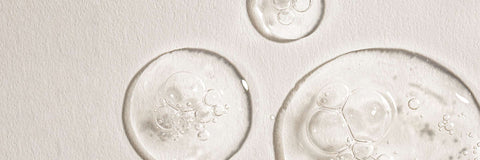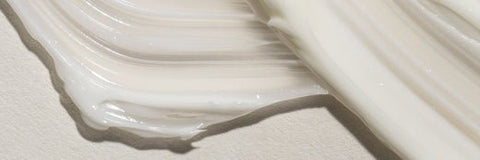Great, natural skin products are key to making sure your skin is looking its best, but they’re far from the only tools. When you add elements like exercise, diet, and supplements into the mix, you can really take your skin to the next level. Treat it from the inside and the outside, and we think you’ll find your skin improves vastly. In this article, we’ll talk about how to get healthy skin from maintaining a great skin care routine to upping your exercise.
IN A NUTSHELL
Main Takeaways: A great skin care routine is the perfect start to getting healthy skin, but it’s far from the only way.
Good to Know: Your skin reacts to everything from the food you eat, to the supplements you take, to the environment around you, so when you are intentional about what you ingest and how you protect your skin, you will reap incredible benefits.
Recommended Products: Starter Set.
Follow a Skincare Routine for Healthy Skin
This seems like an obvious point, but you’d be amazed by how many people don’t really follow one. A daily skin care routine should include, at minimum, a gentle cleanser, and both a facial moisturizer and a results-driven eye cream. We’ve bundled all three products in our Starter Set.
Finish it all off with sunscreen every day. Facial toners, serums and masks are perfect ways to treat your skin and up your skincare game.
While you’re at it, try using a facial tool like a stone roller or a gua sha. It’s the cherry on top of a great skin care routine and will help stimulate lymphatic drainage and restore your skin’s glow.
Exercise for Healthy Skin
You know how you can literally feel the blood pumping through your veins after a really great workout? That’s because exercise increases blood flow. That increased blood flow helps direct oxygen and nutrients to the skin, working to create a healthy and rosy glow to your skin after regular exercise.
Is there a downside to exercise for skin? Sort of– since perspiration can cause breakouts, it’s crucial to make sure you’re washing your face right after you work out. Otherwise, you can put your skin at risk of clogged pores and breakouts.
Diet for Healthy Skin
You heard it said that “You are what you eat”- and that cannot be more true when it comes to the relationship between your skin and the food you eat. That’s why it’s so crucial to follow a healthy skin diet and really make sure you’re consuming foods that work to help your skin rather than harm it. Foods that are high in fat, sugar, and oil aren’t going to do your skin any favors, but when you incorporate foods high in vitamins and antioxidants into your diet, it’ll show on your skin. Foods like berries, salmon, and leafy greens are just a few of the superfoods that can get your skin back on the right track.
The absolute easiest diet hack is to simply drink enough water every day. Add a squeeze of lemon or invest in a sparkling water maker – whatever you need to do to make sure you keep yourself hydrated from the inside out. Your skin is your body’s largest organ, as well as an organ of elimination. Consume bad stuff, bad stuff comes out. Put all the good stuff in and you will see the difference!

Sleep for Healthy Skin
There’s a good reason they call it “beauty sleep!” Not getting enough high-quality sleep at night is a surefire way to make your skin look as worn out as you might feel. Aside from robbing skin of its vitality and glow, a lack of sleep can cause under eye bags and puffiness. In fact, the stress of not sleeping can even induce breakouts. The skin on your face is literally telling you what it needs – more sleep! To keep your skin healthy and happy, start practicing good sleep hygiene: don’t drink caffeine later in the day, prepare your body and mind for bed at least a half hour before you want to get to sleep, and above all, stop looking at screens of any kind once you’re in bed. Get that sleep you need, beauty!
Minimize Stress for Healthy Skin
It’s astounding what stress will do to otherwise healthy skin. When you are super stressed out, your body responds chemically by causing your cortisol levels to go up. Cortisol increases your oil production, which makes your skin go a little haywire, causing breakouts. Believe it or not, stress can also affect proteins in the skin, causing it to lose elasticity. A loss of elasticity means skin will start to sag. Also, think about what your face does when you’re worried about something–if you’re like most people, you’ll probably start to furrow your brow, causing deep “worry lines” to form on your forehead between your eyes.
Thankfully, if you can get your stress levels under control with things like meditation, exercise, or even listening to relaxing music, we think you’ll see improvements in your skin health.
Supplements for Healthy Skin
Most of us know we should be taking vitamin supplements for skin, but a precious few of us actually have a clue about which we should take. While we always recommend talking to your doctor before starting nutritional supplements, here are just a few basic supplements you might want to consider for your skin:
- Evening Primrose Oil - Full of fatty acids like gamma-linolenic acid (GLA), evening primrose oil is a wonderful emollient that helps plump, calm, and soothe the skin. For that reason, those with dry skin should consider using it.
- Vegan Collagen - Collagen is a protein our bodies make on their own and which helps give skin its elasticity. As we age, our collagen production decreases but a vegan collagen supplement can help restore it. Keep in mind that although most collagen supplements are made from animal products or byproducts, there are plenty of vegan collagen supplements available.
- Probiotics - Believe it or not, probiotics are actually bacteria that are said to help boost the skin’s protective barrier, as well as help protect the skin from environmental stressors. Additionally, probiotics help restore balance to the bacteria that live on your skin, supporting healthy, clear skin.
- Vitamin B3 - Known as niacinamide, vitamin B3 is a fabulous antioxidant that helps protect the skin from environmental stressors that seek to harm it. Not only that, it helps balance skin’s natural oils so if you’re someone who has a hard time with oily skin or you spend a lot of time outdoors, consider taking a vitamin B3 supplement.
- Vitamin C - If you’ve read our blogs before, you know we like to beat the drum loudly when it comes to the benefits of vitamin C. There’s almost nothing like it when it comes to giving skin back its glow and/or getting to work on dark spots. If you want your skin to shine like the sun (in a good way!), make sure to take a vitamin C supplement.
- Vitamin D - When it comes to skin care, Vitamin D presents a real chicken-or-the-egg issue. It’s great for your skin, but the easiest way to get it is from the sun. As you may well know, spending time in the sun is one of the easiest and surefire ways to damage your skin. Thankfully, you can just take vitamin D supplements to get the same effect which is wonderful because vitamin D not only has a calming effect on skin, assisting in creating a brighter, smoother complexion.
- Vitamin E - If you have dry skin, vitamin E is for you. Vitamin E is an antioxidant well-known for restoring hydration back into the skin, but it can be difficult to consume through a regular diet, as it isn’t found in many foods. UV damage can also rapidly deplete vitamin E, so taking it as an oral supplement is the best way to include it in your diet.
While it may seem like a long laundry list of actions to take for healthy skin, the great news is that you can slowly and easily add one or two of these changes into your daily routine. Small but significant adjustments in your diet (more of the good, less of the bad), popping a vitamin capsule every morning, or even just focusing on getting more sleep will do wonders for the health of your skin.








